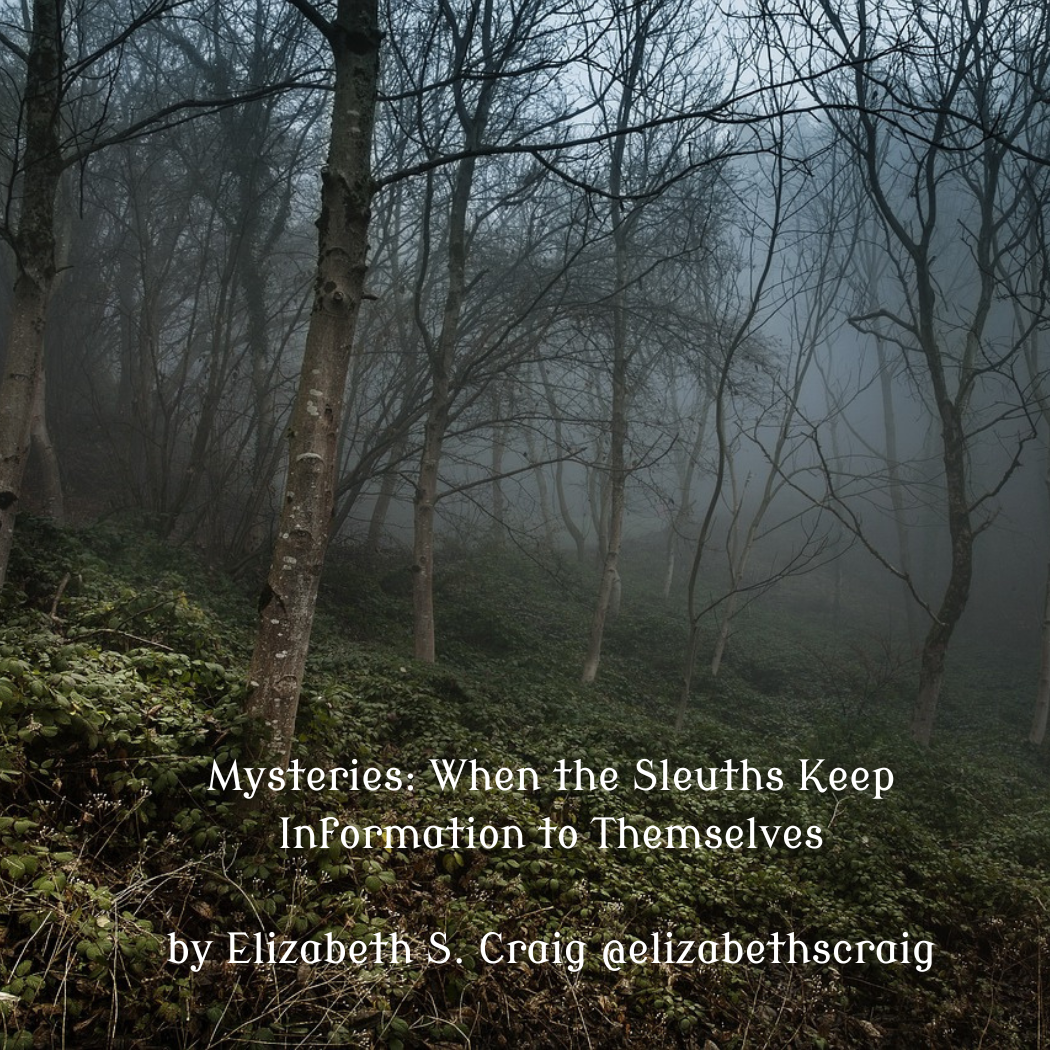by Elizabeth S. Craig, @elizabethscraig
I’ve read several mysteries lately that have surprised me. For a while, I’ve thought all mystery writers understood that mysteries are meant to be interactive affairs. The reader serves almost as a sidekick, following along with the sleuth as they uncover clues, interview suspects, and draw conclusions. That’s the fun of reading the genre.
But these books all had a part where the sleuth sees something, remembers something or realizes something and doesn’t share it with the reader. It’ll be something like: Mary looked closer at the top of the desk. Her eyes opened wide. Then she quickly left the room, her mind whirling.
One of the “10 Commandments of Mystery Writing” from Ronald Knox (early 20th century mystery writer) was: The detective must not light on any clues which are not instantly produced for the inspection of the reader.
The problem is . . . having the sleuth keep information to themselves is frustrating for readers. They’ve been by your sleuth’s side while finding the victim, interviewing suspects, observing clues and red herrings. And now they’re shut out toward the end?
I get it. These writers are trying to make the reveal of the murderer exciting. There are other ways to accomplish this. One well-tested way is to reveal the sleuth’s big discovery to the reader, follow this up with a moment of danger for the sleuth, then have the denoument where the police are called and the sleuth explains everything (things the reader has put together along with the sleuth).
I’ve glanced over online reviews of these books and see upset reader reviews for books where the sleuths keep clues to themselves. Don’t let this happen to you!
If you read mysteries, have you noticed this phenomenon lately? Have you seen it in TV shows, too (I know I have)?
Sleuths Should Share Clues With Readers: Share on X
Image by Thanks for your recognition • Donations ♡ welcome from Pixabay

It is definitely frustrating when the reader feels that the sleuth (and by extension, the author) is keeping something back. There's a balance between that frustration, and giving the reader so much information that there's no mystery involved. It's not easy to do that. I've seen that phenomenon in books, too, and it can pull the reader away from the story.
Frustrating, for sure. It’s like hitting a wall when you’ve been solving the case side-by-side with the sleuth prior to that point.
I see this sometimes in detective mysteries to up the tension and mystery. I know James Patterson and Kelly Armstrong use this technique. If it's not overdone, I'm okay with it.
Thanks for your take on it! Good point about using the technique in moderation.
I've seen it in several TV shows. It does seem to be the pattern now, so much that I hardly notice the annoyance anymore.
It’s probably just die-hard mystery readers that are annoyed by this! Or maybe just mystery writers, ha.